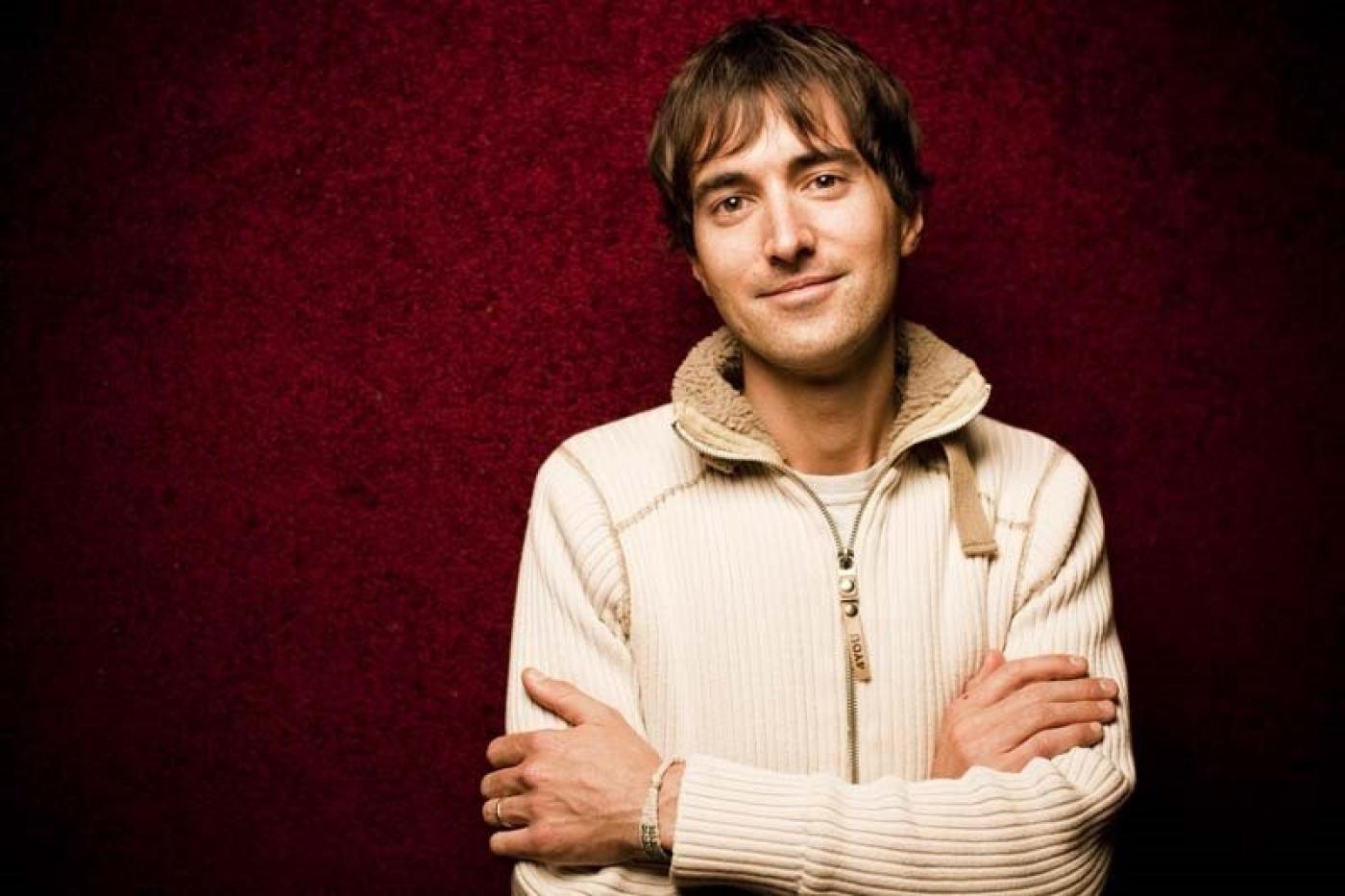Mason Bates’ contemporary American opera makes its Washington National Opera premiere Kennedy Center Opera House. May 2-10.
Last week my smart phone shocked me when it revealed I had spent an average of 8 hours a day scrolling, texting, reading the news, and using it as a personal computer, demonstrating how integral this palm-sized device has become in our lives. You could say that Steve Jobs’ Apple iPhone has revolutionized our culture since its introduction in 2007.
With the tech industry so much in the news, the 2017 Grammy Award-winning opera, The (R)evolution of Steve Jobs with music by Mason Bates and libretto by Mark Campbell, is especially relevant. The story follows the extraordinary life of Apple founder Steve Jobs and his quest for inner peace and is one of the most produced American operas of this century.
WNO’s production features American baritone John Moore in the title role and Wei Wu, a former WNO Cafritz Young Artist in the role he created of Jobs’ spiritual advisor Kōbun Chino Otogaw.
Lidiya Yankovskaya, the pioneering Music Director of Chicago Opera Theater will conduct.
If Steve Jobs could take an existing invention, the telephone, and turn it into something completely new, the iPhone, how does a modern composer/librettist team do the same to a historical form like opera? Composer and former Kennedy Center composer-in-residence Mason Bates was kind enough to answer a few questions about the upcoming WNO premiere of his opera.
Nicole Lacroix: What makes Steve Jobs an operatic character?
Mason Bates: Passion, obsession, betrayal, love, death: the story of Steve Jobs is animated by big, human thematics that resonate throughout opera history.
NL: Does the opera have a personal and universal message that would be different from the movie, say?
MB: Unlike the various movies about Steve Jobs, which switch focus from products to corporate intrigue, the opera delves into the emotional heart of the story. Steve ultimately learns the value of true human connection, guided by his wife Laurene and spiritual mentor Kōbun.
NL: How do you use music to underline the characters...from the young Steve helping to invent a Ma Bell bypass in his basement to the Apple years? How do you portray tech musically? You yourself are a DJ. How do you integrate that art form into the score?
MB: Each character has a unique soundworld – from the pulsing electronica of Steve, to the jazzy saxophones of Woz [Steve Wozniak], to the earthy strings of Laurene. The electronica is integrated into the score almost like a super-percussion instrument : providing rhythm but also sound design, such as Apple-computer beeps and pops.
NL: You were Kennedy Center composer-in-residence, so you’re intimately acquainted with the Opera House and its orchestra. Are you looking forward to “coming home?”
MB: I grew up in Virginia idolizing the Kennedy Center as this arts bastion across the river, with many great memories of shows. It was such an honor to be named the first composer in residence and to create events throughout the Center, including in the brand-new reach when it was inaugurated. Bringing Steve Jobs 'home' to the Kennedy Center reconnects my music with an institution and an audience that I love dearly.
NL: What staging are you using for this production?
MB: We're using the second production from Atlanta Opera, which masterfully integrates video and traditional staging. The storytelling is both imaginative and clear.
NL: Lastly, what is your concept of opera, generally?
MB: Opera contains multitudes, with the ability to tell almost any story from any time. At its core, though, opera explores the most basic human emotions as they smash together. It's thrilling to see the story of one of the most iconic figures of our time come to life on the operatic stage.
PBS PASSPORT
Stream tens of thousands of hours of your PBS and local favorites with WETA+ and PBS Passport whenever and wherever you want. Catch up on a single episode or binge-watch full seasons before they air on TV.
